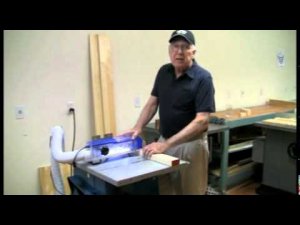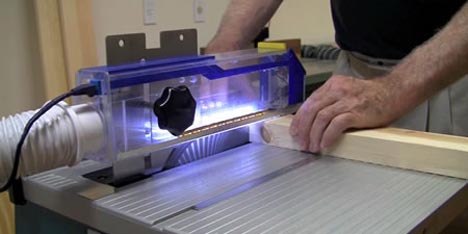SawStop Pushing To Become Mandatory On Table Saws
https://www.tool-rank.com/media/listing/videos/thumbnail/300x300s/e8/ba/78/7ltFuEKCnM4.jpg
ProTool Reviews and The WoodWhisperer both have some great articles about SawStop, a new rival flesh detecting table saw safety system, and what the Consumer Product Safety Commission can do to help lesson table saw injuries.
It turns out that SawStop as a brand was not the first choice for Stephen Gass, the inventor of the table saw braking system. He originally went directly to table saw manufacturers to try and get them to license his SawStop system from them; but his licensing efforts failed. The SawStop technology was too expensive, heavy, and ruined saws blades after each stop. Manufacturers were also afraid of the lawsuits they would get for only using the technology on certain table saw models; it was just not possible to use it on every model.
This is why SawStop went into the saw making business and also why Gass went from a great inventor in my mind, to another money grubbing Washington lobbyist. Instead of letting people make a choice on weather to buy his safety system by purchasing one of his saws, he went to the CPSC to try and force manufacturers into using a flesh detecting and blade stopping system. And because he had the only system, he would have SawStop on every saw sold in the USA. The CPSC never drafted new rules regarding flesh detecting tech back when Gass first went to them in 2008, but now it looks like the CPSC is taking another look; and this is where Gass' lobbying might end up hurting him in the end.

There is a new flesh detecting kid on the block called WhirlWind. WhirlWind might not be as flashy as the SawStop, but it has other things going for it that could make it make it the overall winner. Instead of requiring users to touch the blade in order to activate the blade brake, the WhirlWind uses a flesh detecting blade guard. This system might be a bit more cumbersome, but because your hand is further from the blade, the blade can be stopped without damage, and any false positives will also result in no damage. The WhirlWind is sure to be cheaper for manufactures to add to their saws, and can be done so without adding a ton of weight. A WhirlWind prototype has already be added to Makita, Delta, Powermatic, and Ridgid table saws, so the WhirlWind has already proven to be adaptable to even small jobsite saw.
If the CPSC does indeed require more protecting from manufacturers in the form of flesh detection, at least now there is some competition. And who knows, manufacturers might even be working on their own systems.
WhirlWind Tool
Additional Reading - USAToday

